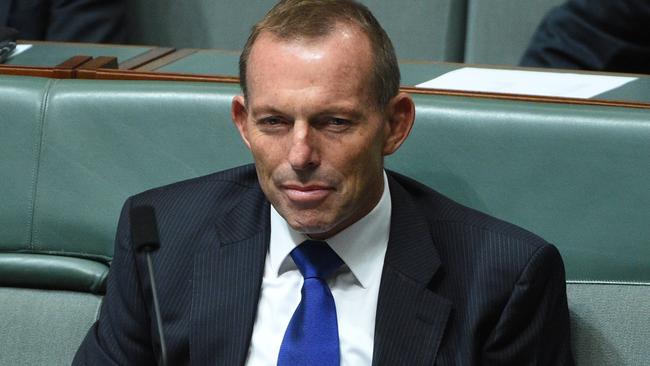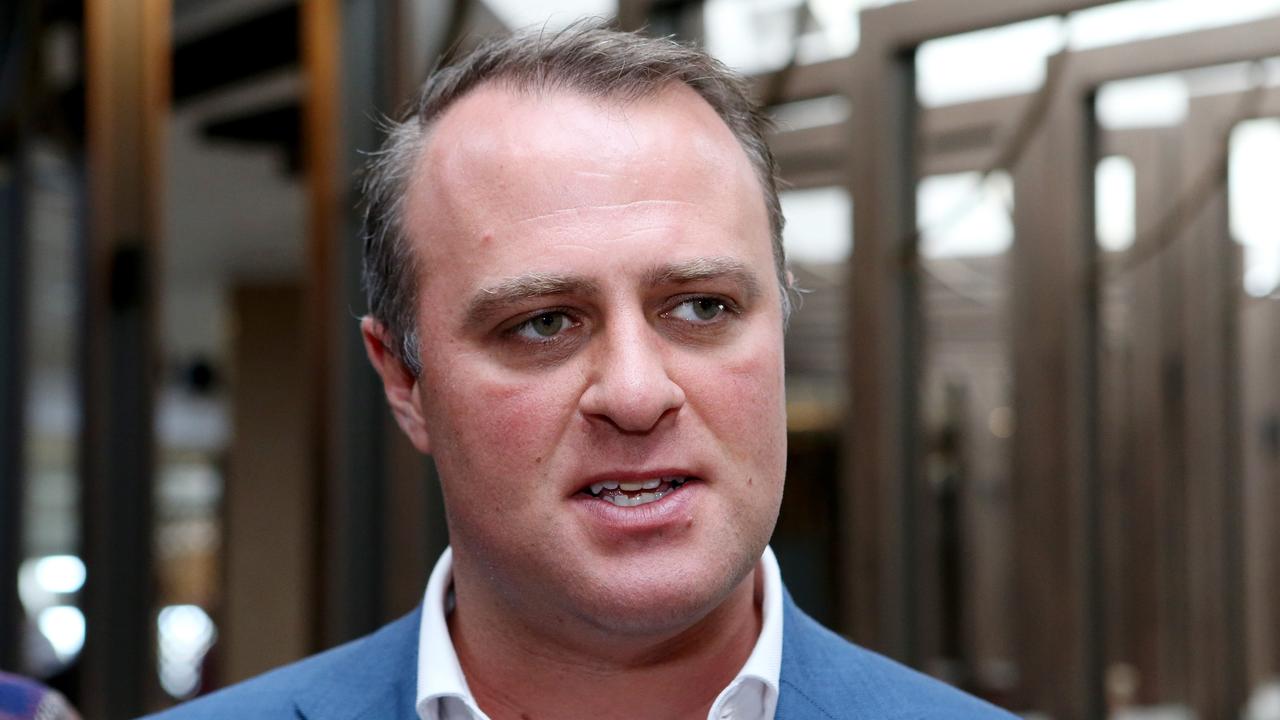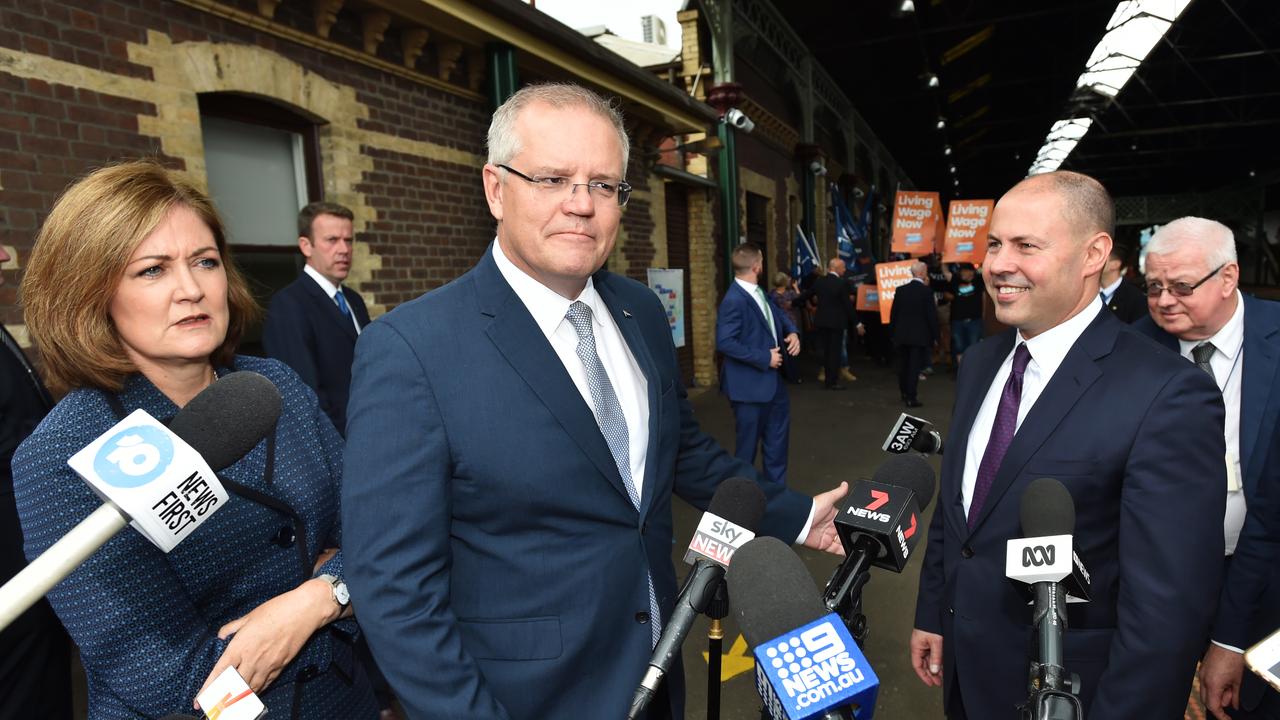Malcolm Turnbull lost without an economic agenda: Tony Abbott
Tony Abbott has launched a 4000-word defence of his prime ministership, asserting spending cuts were his priority.

Tony Abbott has launched a 4000-word defence of his prime ministership, repudiating the thesis Malcolm Turnbull used for his challenge — the absence of an economic narrative — with Mr Abbott asserting budget repair by spending cuts was his principal economic mission.
Mr Abbott now seeks to turn the economic narrative against Mr Turnbull. He says he stood for spending reductions as the key to restoring the budget, delivering scope for genuine tax reform and boosting private sector confidence. He argues that, after five months in office, Mr Turnbull, by contrast, has failed to produce his own economic narrative.
Mr Abbott’s unambiguous message in his essay “The Economic Case for the Abbott government” is that the Turnbull government’s inability to pursue the spending challenge is undermining its policy credentials and political potential. “The challenge for Prime Minister Turnbull will be to retain his popularity once he has a credible narrative of his own,” Mr Abbott says of his essay to be published in the March issue of Quadrant and made available to The Weekend Australian.
“Nearly two years on from the 2014 budget, getting spending down remains the critical issue. The only way to provide for a tax cut rather than a tax shift is to get spending down; hence the ongoing need to implement reforms that generate savings. I’m confident that we could have won the 2016 election with a program of budget savings and lower tax.”
Mr Abbott said he saw sound government financing as an economic and moral imperative. He said the reason his government was behind in 30 Newspolls, as Mr Turnbull said on the day of the challenge, was because he tried to tackle the structural budget deficit.
“The poll-measured unpopularity of the Abbott government was not due to any shirking of responsibility but to our determination to do our duty by getting our own spending under control,” Mr Abbott said.
A critical argument in the essay is the contention governments taking tough spending decisions cannot remain popular throughout the electoral cycle. He said that if the test was to “always be ahead in the polls, as well as to win elections” then “tough-but-necessary decisions will rarely be taken”.
It is an obvious critique of those who brought him down. Mr Abbott’s essential argument is that he was brought undone by the polling consequences of trying to align spending with revenue. Yet this task remains undone. In effect, Mr Abbott is challenging the Turnbull government to face up to this responsibility.
Mr Abbott concedes several mistakes but offers a sustained defence of the 2014 budget. While noting many commentators saw the budget as his biggest mistake, he calls it “a badge of honour”.
He defends each measure saying he was prepared to run risks for the nation’s long-term financial interest. Pointing to product differences with Mr Turnbull, Mr Abbott said the “likelihood” is he would have gone to this year’s election as prime minister seeking a mandate to “reduce or eliminate” one-off payments and tighten eligibility for other benefits thereby financing income tax cuts during the next term. In short, tax cuts paid for by spending restraint.
Mr Abbott believes championing his government’s economic record reinforces the Coalition’s standing at the election. “The government’s economic narrative had been clear from the beginning,” he said. “Lower taxes, less regulation and higher productivity — but that necessarily meant getting debt and deficit under control.”
He said the budget situation he inherited from Labor was “even worse” than he had feared. The task of budget repair was “even more urgent” and, contrary to claims, the 2014 budget was “fair” because it “sought to end the intergenerational theft”. He said he considered a mini-budget in late 2013 but decided against it on grounds that pre-Christmas confidence would be hit. He reports that Liberal focus group research showed voters feared not a tough budget but that Mr Abbott might “squib” the challenge.
Mr Abbott said his “strong instinct” had been that “people would accept tough changes” including those “that hadn’t explicitly been flagged” because budget repair had been a prominent theme in the Coalition’s 2013 election campaign. But he conceded the problem was “individually unpopular measures for which there was no specific mandate”.
Reviewing his spending record overall Mr Abbott said: “We were far from successful but made a determined effort. Certainly, no fair-minded judge could accuse us of shirking the challenge.”
He said the problem with the 2014 budget was less the measures and more that they failed to pass the Senate. He made no mention of the recent remark by Treasurer Scott Morrison that the Coalition in office had made $80 billion of savings but spent another $70bn.




